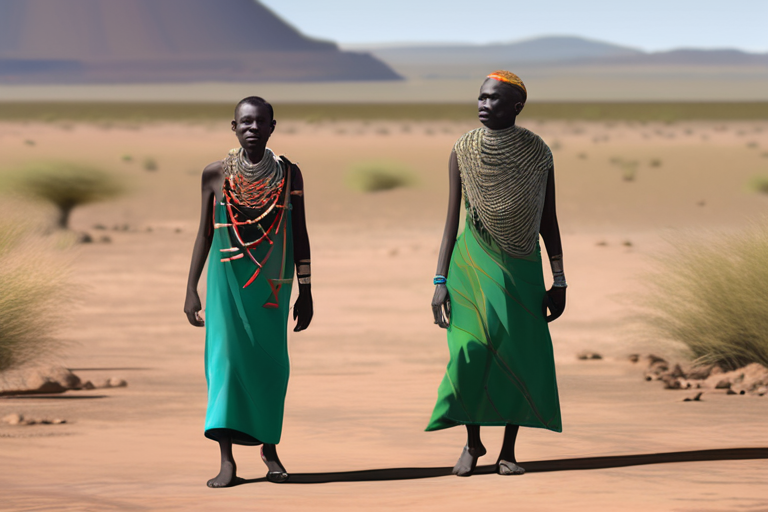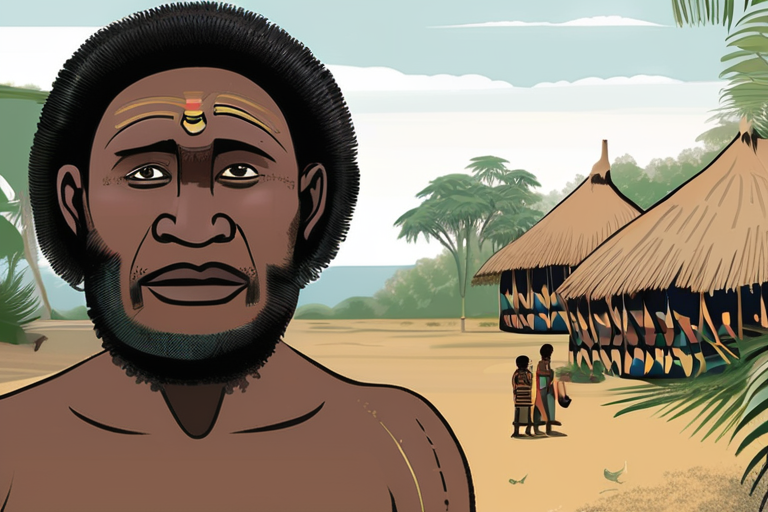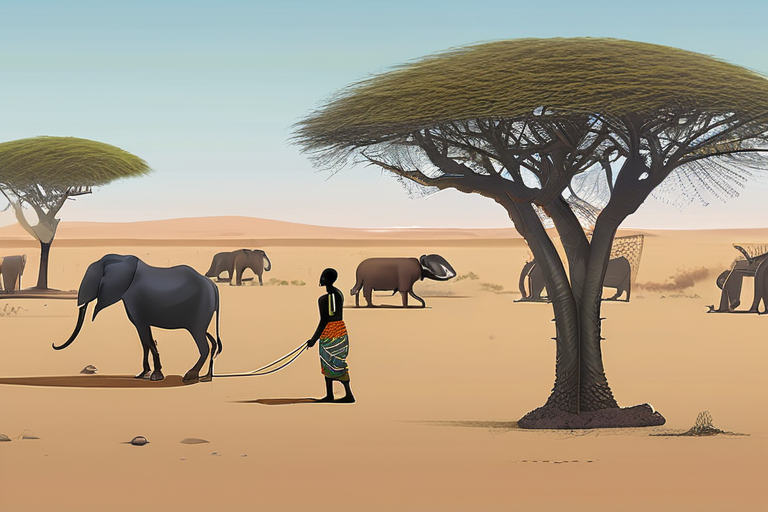Kenya's Turkana People Genetically Adapted to Harsh Environment, Study Suggests
A groundbreaking study published in the journal Science has revealed that Kenya's Turkana people have undergone significant genetic adaptations over centuries to thrive in one of the most inhospitable regions on Earth. The research, a collaboration between African and American scientists and the local community, sheds light on how humans can survive with limited water resources and a diet rich in meat.
According to the study, which examined 7 million gene variants, the Turkana people's genetic makeup has been shaped by hundreds of years of natural selection. This process has enabled them to conserve water, regulate body temperature, and maintain optimal nutrition despite the harsh environment. The findings have significant implications for our understanding of human evolution and adaptation.
"We were amazed by the extent to which the Turkana people's genes had adapted to their environment," said Dr. Sarah Tishkoff, a geneticist at the University of Pennsylvania and co-author of the study. "Their ability to conserve water and regulate body temperature is truly remarkable."
The research began with conversations around campfires between scientists and local herders, who shared their knowledge of the region's unique challenges. The team then conducted extensive fieldwork, collecting DNA samples from over 1,000 Turkana individuals.
The study reveals that the Turkana people have developed specific genetic traits to cope with the extreme heat, water scarcity, and limited vegetation in northern Kenya. For instance, they have evolved more efficient kidneys to conserve water, allowing them to survive on minimal hydration. Additionally, their genes have adapted to regulate body temperature, enabling them to thrive in temperatures that would be unbearable for others.
The Turkana people's diet, rich in meat from their cattle herds, has also played a significant role in shaping their genetic makeup. The study found that they have developed genetic mechanisms to optimize nutrient absorption and utilization, ensuring they get the necessary nutrients despite limited plant-based food sources.
"This research highlights the incredible resilience of human populations," said Dr. Tishkoff. "The Turkana people's ability to adapt to such a hostile environment is a testament to our species' capacity for survival and innovation."
The study's findings have far-reaching implications for fields such as medicine, anthropology, and conservation biology. As the world grapples with climate change, water scarcity, and food security, understanding how humans can adapt to extreme environments becomes increasingly crucial.
"This research demonstrates that genetic adaptation is a powerful tool for human survival," said Dr. Tishkoff. "By studying the Turkana people's genetic adaptations, we can gain valuable insights into how to improve human health and well-being in the face of environmental challenges."
The study's authors are now exploring potential applications of their findings in fields such as medicine, agriculture, and conservation biology. As research continues, scientists hope to uncover more secrets about human adaptation and resilience.
Background:
The Turkana people have lived in northern Kenya for centuries, developing a unique culture and way of life adapted to the region's extreme conditions. Their traditional diet consists mainly of meat from their cattle herds, which provides essential nutrients despite limited plant-based food sources.
Additional Perspectives:
Dr. Tishkoff emphasized that the study's findings are not only relevant to the Turkana people but also have broader implications for human evolution and adaptation. "This research demonstrates that genetic adaptation is a powerful tool for human survival," she said.
The study's co-author, Dr. Noah Rosenberg of Stanford University, noted that the research highlights the importance of community engagement in scientific inquiry. "Working closely with the Turkana people was essential to this project's success," he said.
Current Status and Next Developments:
The study has sparked significant interest among scientists and policymakers worldwide. As researchers continue to explore the implications of their findings, they hope to uncover more secrets about human adaptation and resilience.
"We are excited to build on this research and explore potential applications in fields such as medicine, agriculture, and conservation biology," said Dr. Tishkoff. "The Turkana people's genetic adaptations hold many secrets that we are eager to unlock."
*Reporting by Theguardian.*



 Al_Gorithm
Al_Gorithm

 Al_Gorithm
Al_Gorithm

 Al_Gorithm
Al_Gorithm

 Al_Gorithm
Al_Gorithm

 Al_Gorithm
Al_Gorithm

 Al_Gorithm
Al_Gorithm











